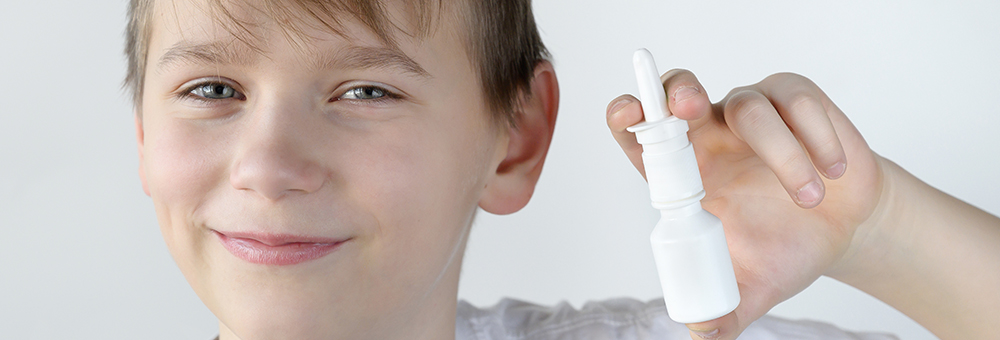
The SNIFFLE studies investigated the safety of nasal influenza immunisation in egg-allergic children. The results of the study led to a change in national immunisation policy, resulting in considerable cost-saving for the NHS.
Published: 27 May 2019
Current flu vaccine
Flu (Influenza) immunisation has been recommended in the UK since the late 1960s to reduce the spread of the infection and protect people in high-risk groups, for whom flu may prove to be serious or fatal.
The current flu vaccine can contain egg protein which means that until recently egg-allergic children were referred by the NHS to secondary care for immunisation.
New flu nasal vaccine
A flu vaccine known as LAIV (Live Attenuated Intranasal Vaccine) has recently been approved by a number of licensing boards. LAIV is grown in hens’ eggs which means that it can contain egg protein.
The Joint Committee on Vaccination and Immunisation recommends LAIV as the flu vaccine of choice for 2 reasons:
- it has been found to be the most effective vaccine available
- it is administered through a nasal spray rather than an injection, which is preferred by parents and children
SNIFFLE studies - outcomes and findings
The SNIFFLE and SNIFFLE-2 studies aimed to determine whether LAIV was safe for use on children with an egg allergy.
The two SNIFFLE studies vaccinated 1,061 egg-allergic children with the current flu vaccine and observed them afterwards.
Both studies were multicentre trials, across 14 and 29 sites respectively. The NIHR provided the framework for this multicentre approach and supported local sites.
Researchers immunised egg allergic children with the vaccine, observed them for 2 hours afterwards and followed this up with a phone call after 3 days to assess for any adverse effects.
The SNIFFLE-2 study also followed up after 1 month to check for any effect on asthma control.
LAIV is not currently recommended for children and adolescents with severe asthma or active wheezing.
The research is continuing with SNIFFLE-3 and SNIFFLE-4 studies investigating the safety of LAIV in children with pre-existing asthma.
Reducing NHS costs
The SNIFFLE and SNIFFLE-2 studies led to a change in national immunisation policy.
The results were presented to the Joint Committee on Vaccination and Immunisation and on the basis of the data, LAIV is now permitted to be administered to children with an egg allergy.
This means that egg allergic children now receive the vaccine in primary care or schools as part of the national immunisation programme.
The studies have led to considerable cost savings for the NHS by reducing referral to secondary care for flu immunisation in egg allergic children.
The Chief Investigators were Dr Mich Lajeunesse, Southampton Children’s Hospital and Dr Paul Turner, Imperial College London.
Key publications
Turner PJ, Southern J, Andrews NJ, Miller E, Erlewyn-Lajeunesse M; SNIFFLE Study Investigators. Safety of live attenuated influenza vaccine in atopic children with egg allergy. J Allergy Clin Immunol. 2015 Feb 1 PMID: 25684279.
Turner PJ, Southern J, Andrews NJ, Miller E, Erlewyn-Lajeunesse M; on behalf of the SNIFFLE-2 Study Investigators (2015) Safety of Live Attenuated Influenza Vaccine in Children with Egg Allergy: a multi-centre, non-randomised intervention study. BMJ. 2015 Dec 8;351:h6291 PMID 26645895.

